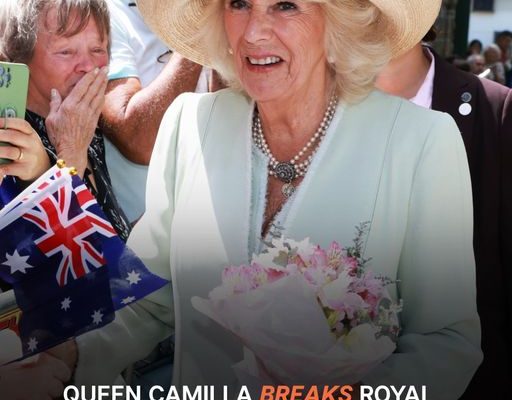Queen Camilla, 77, Breaks Royal Protocol During Australia and Samoa Tour with Husband King Charles
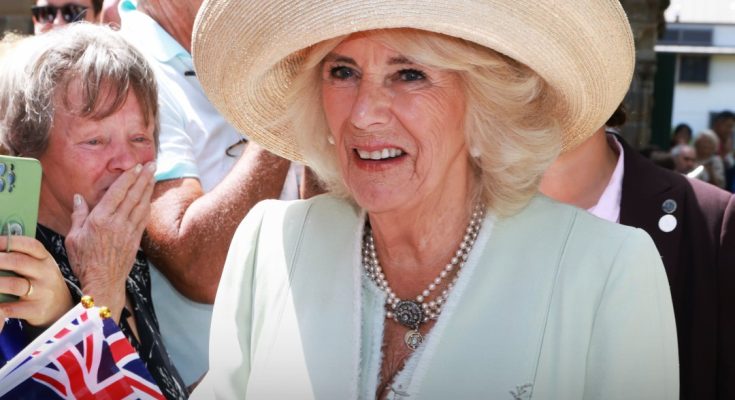
Queen Camilla’s recent interaction with fans has left many wondering if the monarchy is finally loosening its grip on strict etiquette. While the royal family is known for adhering to strict rules, Queen Camilla, 77, was spotted breaking one of these protocols while on a tour of Australia and Samoa with her husband, King Charles.
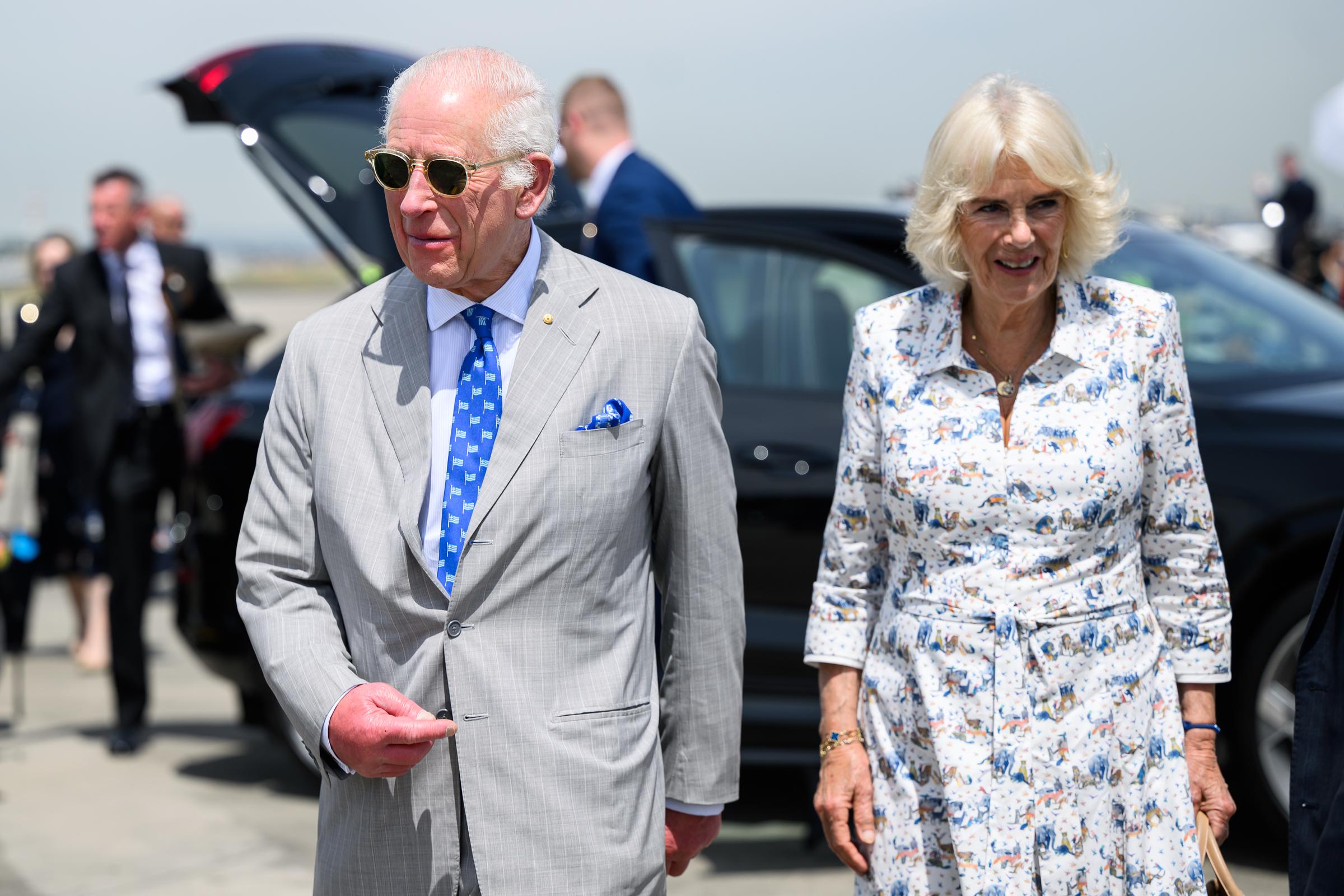
King Charles III and Queen Camilla at Sydney Kingsford Smith Airport on October 23, 2024, in Sydney, Australia. | Source: Getty Images
On October 20, 2024, while visiting St. Thomas’s Anglican Church in Sydney, the Queen Consort took selfies with the crowd—a move that caught the attention of many.
While there are no obligatory codes of behavior when meeting a member of the royal family, tradition still holds strong. For men, a simple neck bow is customary, while women may offer a small curtsy. Others opt for a handshake.
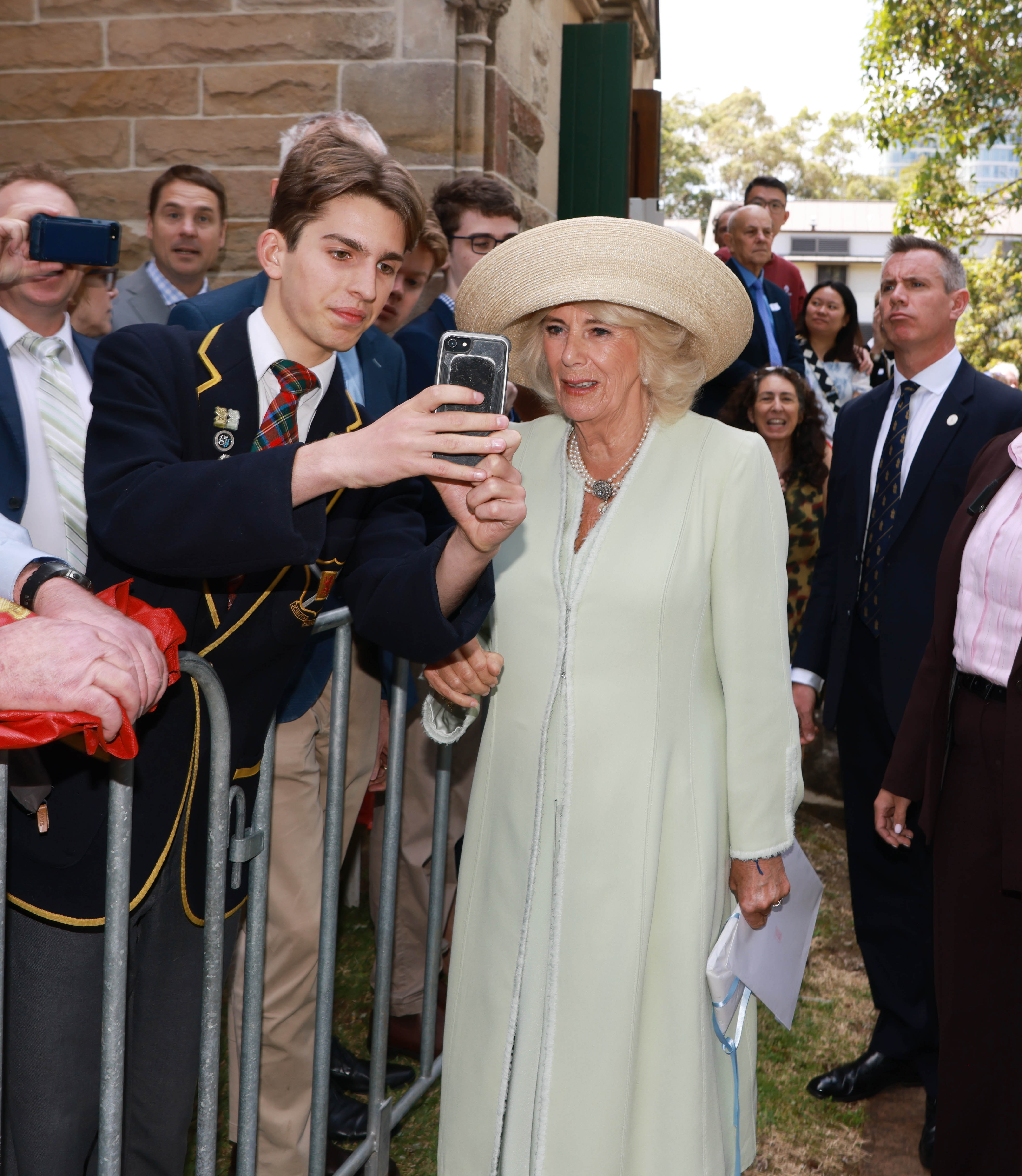
Queen Camilla greets supporters at St. Thomas’s Anglican Church on October 20, 2024, in Sydney, Australia. | Source: Getty Images
However, selfies, though not officially banned, have long been discouraged by the royal family. As CCN Royal Commentator Victoria Arbiter explains, “Royals would always rather have a personal interaction than have people clamoring for selfies.”
Victoria also pointed out the potential pitfalls of granting selfie requests. “If you grant one, then it quickly becomes overwhelming,” she noted. Security concerns also come into play, given the proximity required for a selfie.
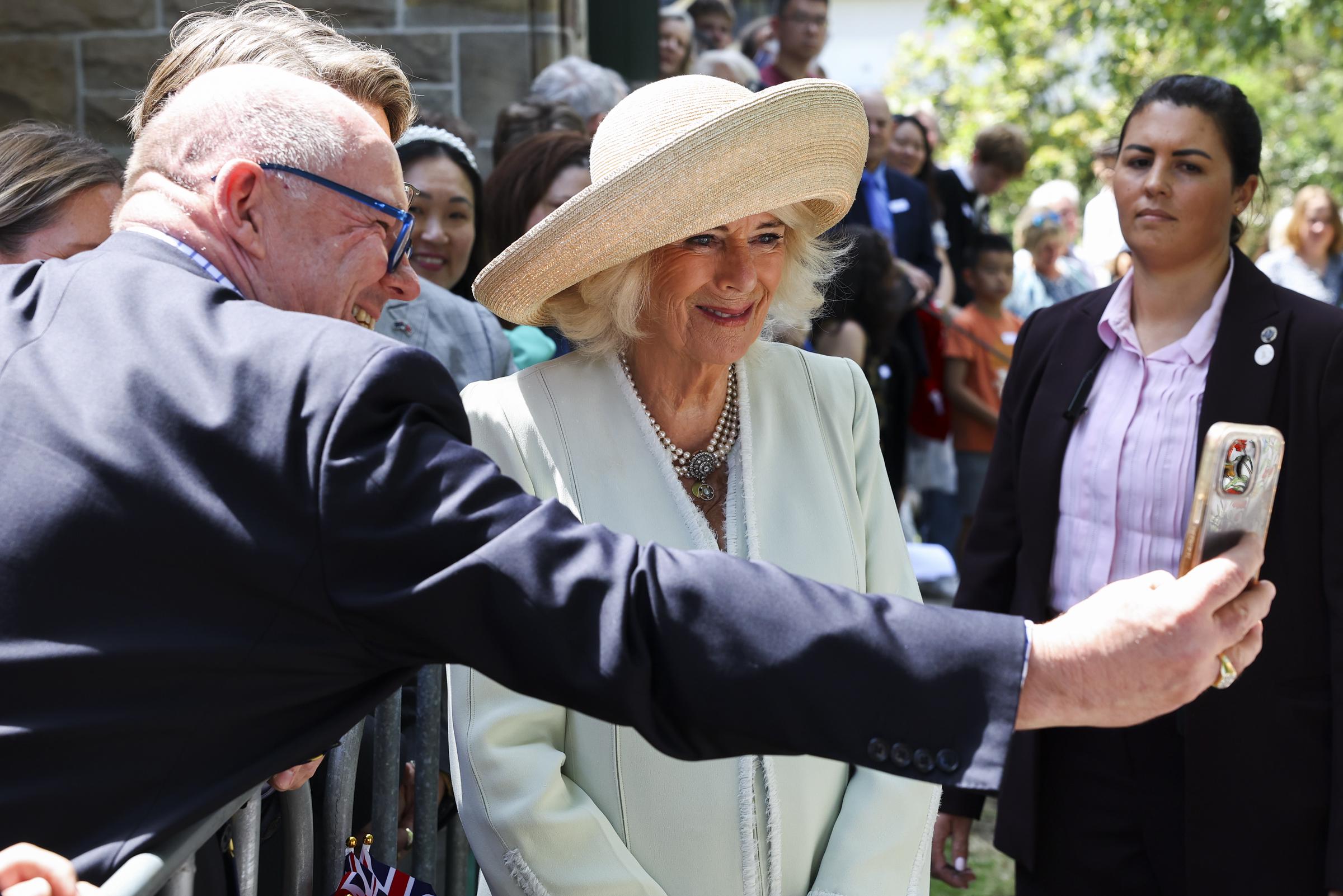
Queen Camilla greets supporters at St. Thomas’s Anglican Church on October 20, 2024, in Sydney, Australia. | Source: Getty Images
Prince Harry, in particular, is known for avoiding selfies. Still, there is no hard-and-fast rule against selfies. Royals tend to handle each situation as it comes. However, there are exceptions in special cases, such as when a sick child requests one during a hospital visit.
But during walkabouts, where royals greet large public crowds, selfies are usually avoided, to keep things moving smoothly. Queen Camilla’s decision to take selfies during her recent tour of Australia wasn’t just a spontaneous gesture. It also highlighted a shift in how some members of the royal family are embracing modern fan interactions.
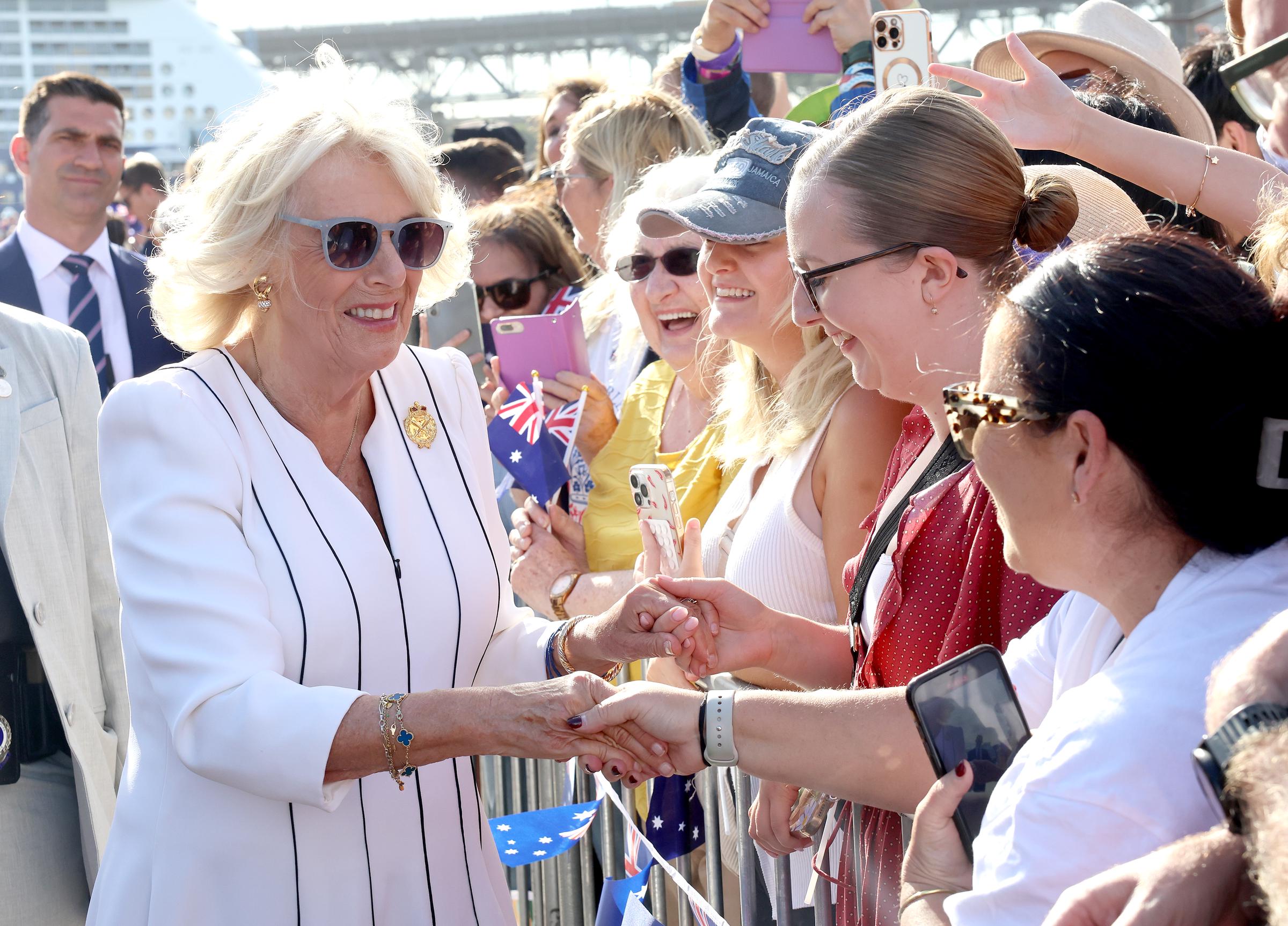
Queen Camilla meets members of the public during a walkabout at the Sydney Opera House on October 22, 2024, in Australia. | Source: Getty Images
But Camilla isn’t the only one bending the rules. Prince William has also joined in on this more relaxed approach to royal engagements. Back in March 2024, during an official royal duty, William paused to take a selfie with a fan.
The moment was captured on video and shared by royal correspondent Richard Palmer on X. In the post, Richard’s caption reflected the evolving attitude towards selfies.
He wrote, “When selfies first became a thing, members of the Royal Family hated them. The late Queen also got fed up with mobile phones interfering with how she met the public. But William and others now embrace them. Here he is posing for a selfie with Leigh Stinchcombe, 33, in Sheffield.”
Fast forward to June, and William was back in selfie mode. During Taylor Swift’s Eras Tour stop in London, the Prince and his children posed for a selfie with the singer and her boyfriend, NFL star Travis Kelce.
Much like Prince William’s recent selfie moments, Queen Camilla’s interactions with fans during their six-day tour marks a shift in how the royal family adapts to modern public interactions. It was also the royal couple’s first visit to the region since Charles ascended the throne.
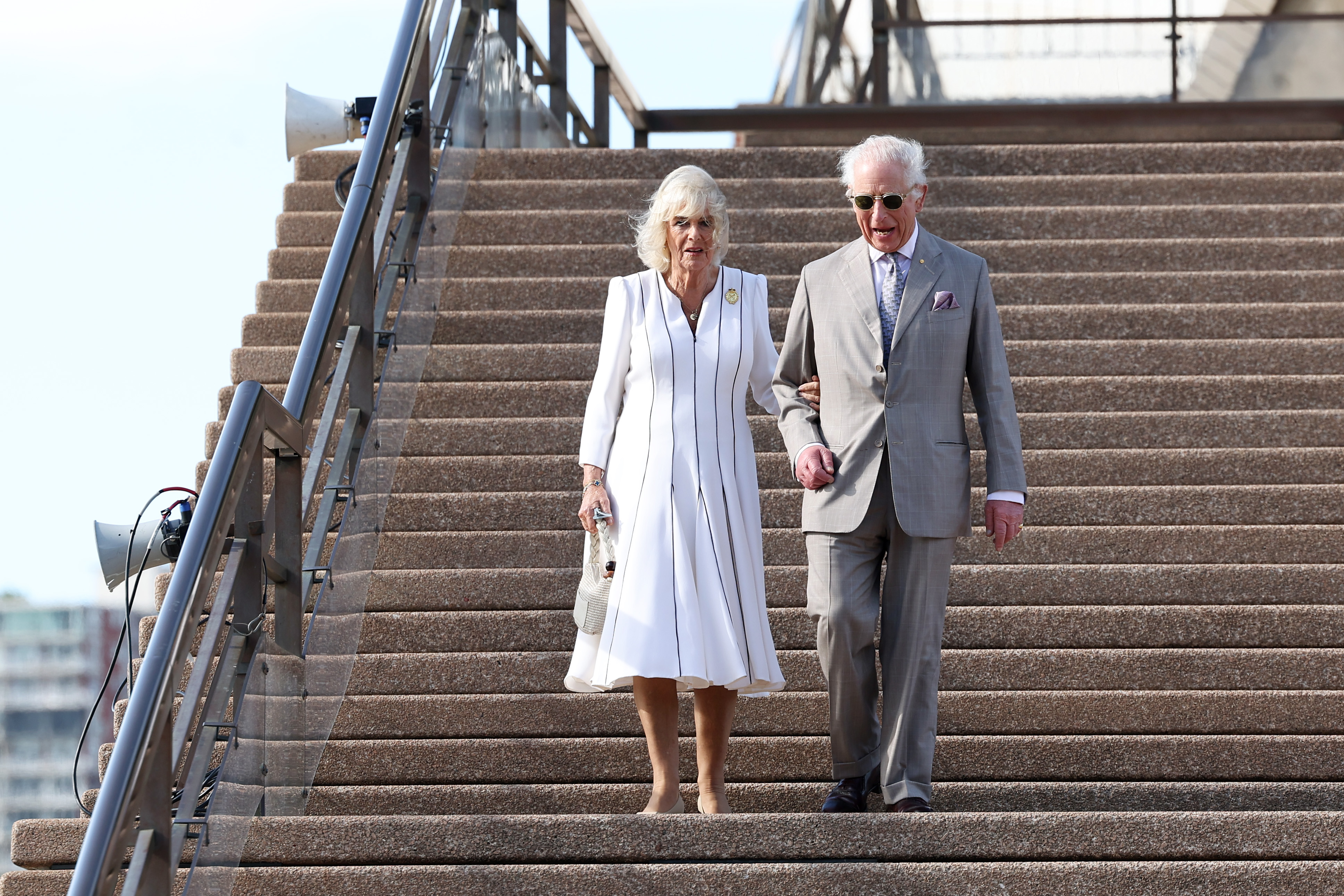
King Charles III and Queen Camilla at Sydney Opera House on October 22, 2024, in Sydney, Australia. | Source: Getty Images
Among their official duties was the historic task of signing Australia’s first Bible and book of common prayer. It’s a tradition that every royal visiting the country has upheld. The Bible, originally owned by Rev. Richard Johnson, the first Christian minister in Australia, carries immense historical significance.
The late Queen Elizabeth II signed it in 1954 during her groundbreaking visit—the first ever by a reigning monarch to the nation. King Charles has followed suit, adding his signature beneath the name of the late Princess of Wales from her visit in 1983.
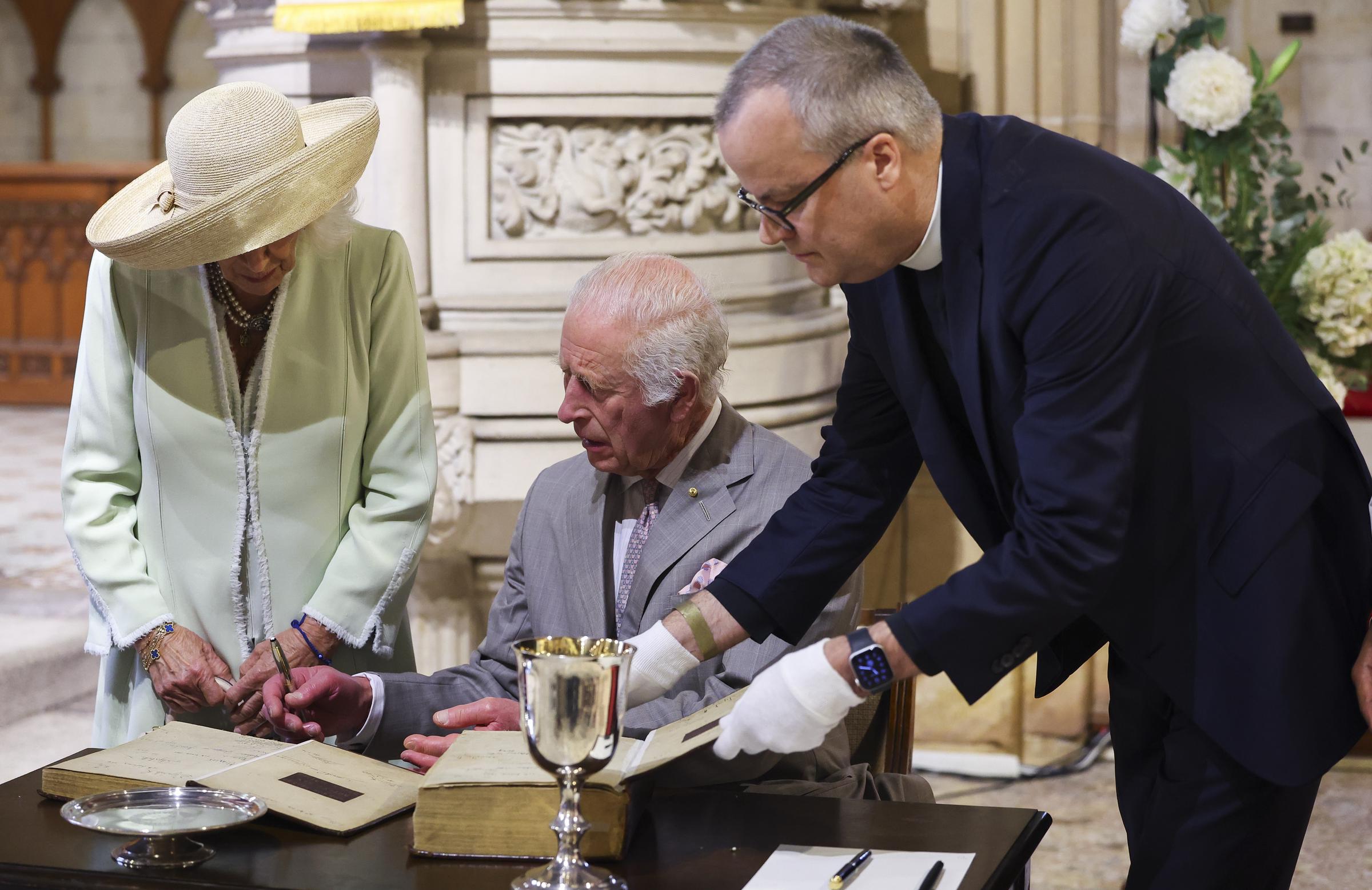
King Charles III and Queen Camilla look at the Book of Common Prayer during a visit to St. Thomas’s Anglican Church on October 20, 2024, in Sydney, Australia. | Source: Getty Images
Though the King and Queen arrived in Sydney together on October 18, they had separate travel arrangements. According to the Court Circular, King Charles left London on October 17, but Queen Camilla was not mentioned in the entry.
Reports suggest that Camilla opted for a more leisurely route. She broke the long journey with a private vacation stop. This separation appears to be rooted in personal preference.
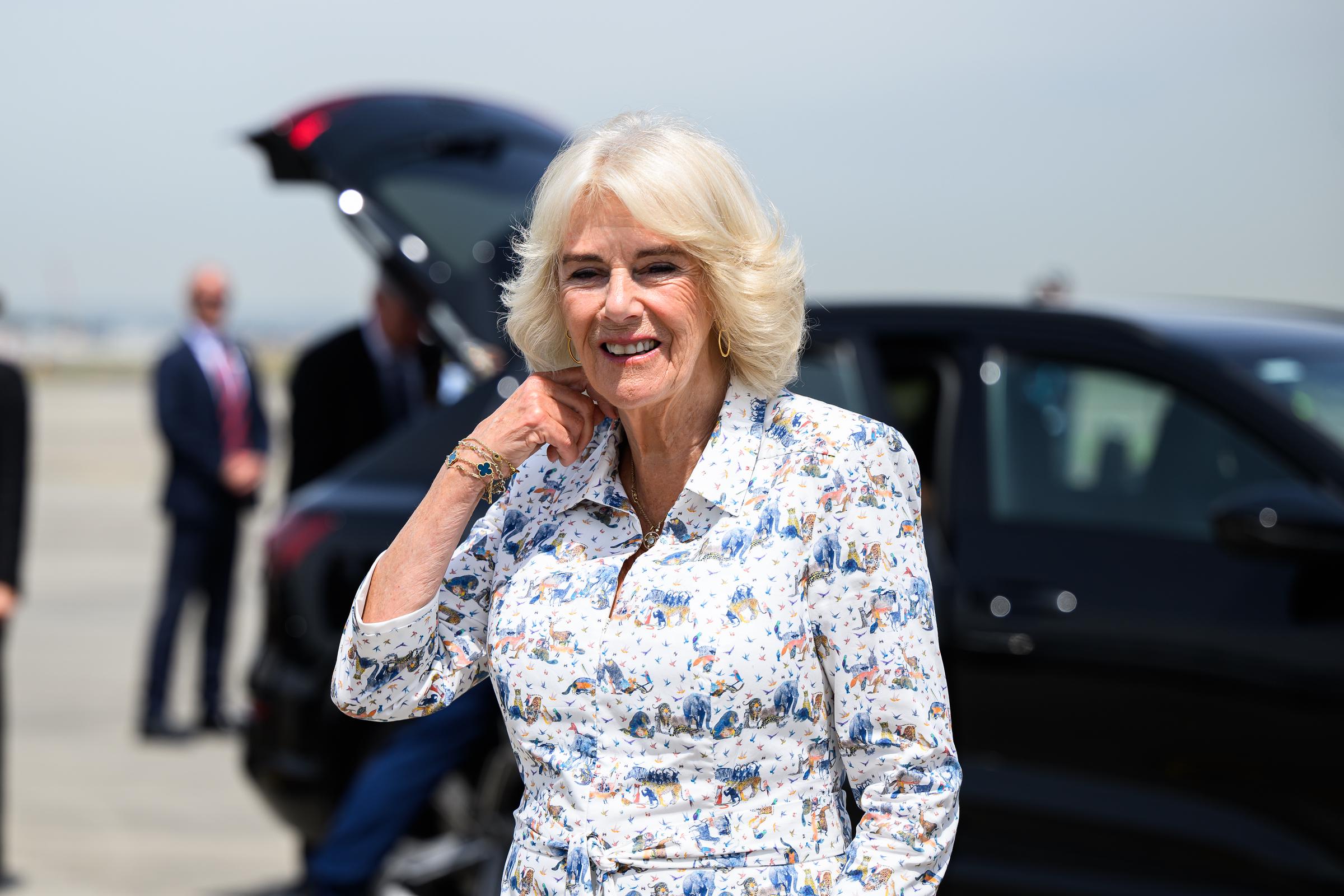
Queen Camilla at Sydney Kingsford Smith Airport on October 23, 2024, in Sydney, Australia. | Source: Getty Images
The Queen, who is known to have a fear of flying, often chooses to split long-haul flights with spa visits to ease the travel burden. Despite their differing travel preferences, the couple showcased a unified image upon arriving in Australia, where they received a warm, formal welcome to kick off their royal duties.
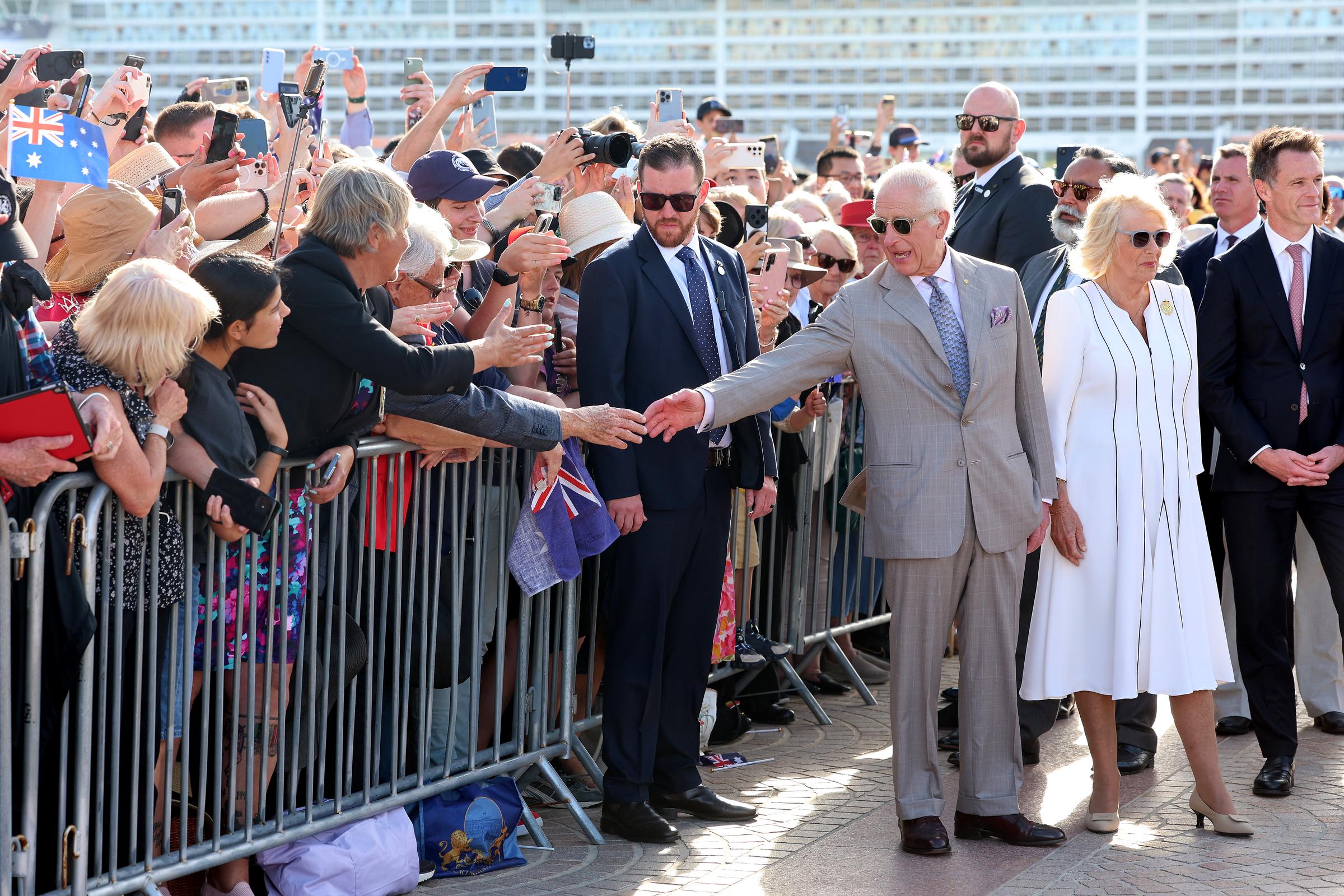
King Charles III greets a spectator as he arrives at the Sydney Opera House on October 22, 2024, in Sydney, Australia. | Source: Getty Images
In a statement released by the palace in September regarding the royal tour, it was noted that the itineraries would showcase the highlights of Australia and Samoa.
Buckingham Palace remarked that this would be King Charles’s first visit to Australia as monarch and that he would also attend the Commonwealth Heads of Government Meeting in Samoa, marking his debut as Head of the Commonwealth.
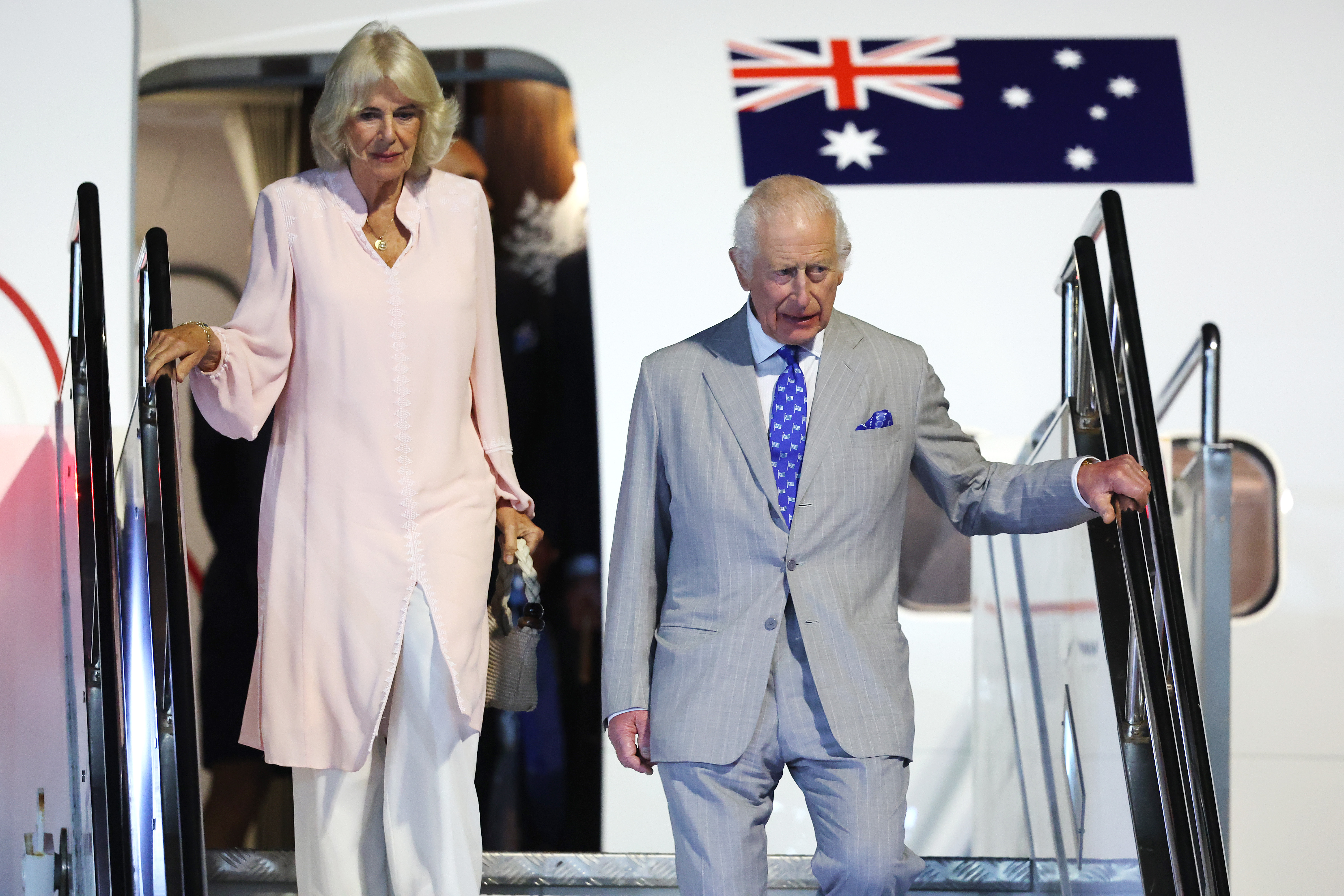
King Charles III and Queen Camilla arrive at Faleolo International Airport on October 23, 2024, in Apia, Samoa. | Source: Getty Images
The palace added that Their Majesties engagements in both countries would center on themes celebrating the best of Australia and Samoa while also reflecting the work of the King and Queen.
